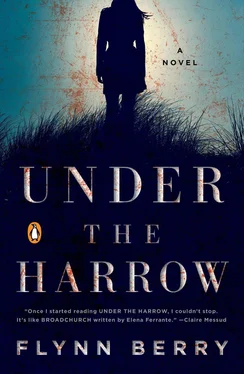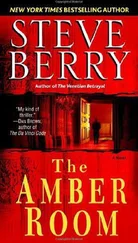The girl was shaking, I thought from being in the same room as the defendant, an older teenager who ignored everyone in the room except his barrister and the judge.
The barrister gave a name and asked the girl if she knew him. She said yes, they were friends.
“Did you send photographs of yourself to him?” he asked in a level voice.
The girl hunched. “Yes.”
“What was in the photographs?”
Rachel leaned forward. She wasn’t looking at the barrister. She was intent on the judge. He had to stop this. The judge calmly regarded the girl, and the barrister. His face was so pale it seemed to have a layer of dust or chalk.
“I’m in them.”
“What are you doing in the photographs?”
The jury appeared interested in this development. None of them frowned at the barrister. Their expressions showed only focus, an eagerness to take this new information into account.
She didn’t answer.
“Are you nude in them?”
“Yes,” she said.
“Why did you send the photographs?”
“I liked him.”
The barrister was quiet for a long moment, as though deflated by this revelation about her. Then he straightened. “How many boyfriends have you had?” he asked, and his voice sounded confident and refreshed.
This continued for another hour. A few of the jury members finally started to appear uneasy, but most of them seemed sunk in disapproval, their minds made up about her. The judge wasn’t surprised. That might have been what worried me most. He watched a middle-aged man ask a child how many times she’d had sex and if she masturbated often and if she took topless photographs, and never showed any discomfort. It must happen all the time.
The prosecutor showed photographs taken in hospital of bruises on the girl’s wrists and legs, but the jury’s faces didn’t turn sympathetic. The bruises didn’t mean it wasn’t consensual, the defense barrister argued. It might have been rough sex.
Rachel and I didn’t speak as we left the court. The defendant was declared not guilty. Later we tried to find the girl, but her name had been starred out of the court records because she was a minor.
That evening we rode home in silence. The sky was still light above the shadowy trees and utility lines. The air was balmy and soft. Cow parsley grew high along the road.
“I can’t do this on my own after you leave,” I told her. She was moving to Manchester in September for her nursing course.
“Why not?”
“I’ll be too busy. I have to study for my A levels.”
She didn’t look at me.
THE LIBRARY IS ONE of the painted-wood buildings on the high street in Marlow. I still have Rachel’s library card from the last time I borrowed it, and I need something to do at night at the Hunters. I pull out books at random. The Lover. Balthazar. King Lear .
Never, never, never, never, never. Kill, kill, kill, kill.
I can’t remember if that is the right quote. I keep pulling books but I can’t understand any of them, even the ones I have read before. The sentences don’t lock together. I climb the narrow stairs to the children’s collection and choose a book of German fairy tales with beautiful colored illustrations.
“You have two books overdue,” says the librarian at the checkout desk. He is young, with black hair and round glasses. He doesn’t live in Marlow, I’ve seen him waiting for the bus to Oxford with his bag on his lap.
“What are they?”
“The Nesbø and the Läckberg.” He waits. Her last books. “Do you want to renew them?”
“Yes,” I say, “thank you.”
• • •
After the library, I drive to Abingdon. A poster in the corridor at the police station promotes an early retirement scheme, and I look between it and the book of fairy tales.
“Why don’t you retire?” I ask Moretti.
“Ah,” he says, “you’ve noticed our voluntary redundancy program.” I wait. He takes off his glasses and wipes his eyelids. “It’s complicated.”
“You have a house in Whitstable.”
“I have a shack,” he says. I try to imagine him as a fisherman, in yellow waders, steering a boat through rocks.
“We didn’t find anyone at the hospital named Martin,” he says. “Are you sure that’s how she knew him?”
“She said he was a friend from the hospital. You didn’t find anyone at all? Isn’t it a common name?”
“No one in contact with Rachel, no staff or patients on her ward. What did she say exactly?”
“She said she had to hang up. She said she was going to meet a friend from the hospital named Martin.”
“When was this?”
“Sunday evening.”
“Where was she meeting him?”
“I don’t know.”
“Was she going to drive or walk to meet him?”
“She didn’t tell me.”
“You said before that they were going to have dinner. What made you think so?”
“Just the hour. Half six, something like that.”
“The thing is,” says Moretti, “we’ve looked at her phone and e-mail. There were no recent calls or messages to or from an unknown person, or anyone named Martin. It’s likely she made a verbal agreement to meet him.”
“Is that strange?”
“You know better than I do. How did Rachel normally arrange social engagements?”
“Text,” I say. “And then she was always late, so she always sent a message apologizing for being late. Is there anyone in town named Martin?”
“Yes, but he’s nine years old.” Moretti lifts the end of his tie and tucks it back into nothing. “Your father asked where you’re staying.”
“Did you tell him?”
“No.”
“He’s living in a hostel in Blackpool. Do you want their number?”
“No. Did you tell him Rachel owned a house?”
“Not directly, no.”
He might want to move in. He might be there already, using her things, replacing her specific atmosphere with his. One of the rehabs, years ago, asked me to store his belongings. Three bin bags, which when I returned to my flat I discovered were filled with wire clothes hangers and papers and one pair of stiff, wrinkled jeans. Everything he owned.
He mostly ignored us when we were growing up. He was drinking then, though he still found jobs on building sites and kept the house in fairly decent order. Soon after we left home he lost the house, and began to drink more, and stay with friends. I don’t know why it became more severe, if an event triggered it or if he was just worn down from years of managing.
We used to try to rescue him. The two of us, turning up at a house in Hull or a track in Leeds. As soon as she started working, Rachel regularly sent him money. Nothing we did helped, though, and, with shame, we stopped trying.
Moretti promises that he didn’t give him Rachel’s address, and we talk for another hour.
“Why did your last relationship end?” he asks.
“He was unfaithful.”
“When did the relationship end?”
“In May.”
It doesn’t strike me as strange of him to ask. It doesn’t even seem like police work. We talked about the news earlier, a political scandal in London, and I had the sense that he hadn’t spoken about it with anyone yet and wanted to process it. The scandal in Whitehall certainly had nothing to do with the case. I still miss Liam. Every day I don’t think of him is a triumph.
“Who was the other woman?”
“He didn’t know her name. He was in Manchester for work, they met at a bar. They didn’t continue to see each other.”
“How did you find out?”
“I found a pair of black lace knickers in his bag. They must have gotten mixed up with his clothes when he left the hotel. I knew they weren’t mine, they were a brand I’d never heard of before.” The lace was the expensive kind, so delicate it’s almost ragged, spidery.
Читать дальше












